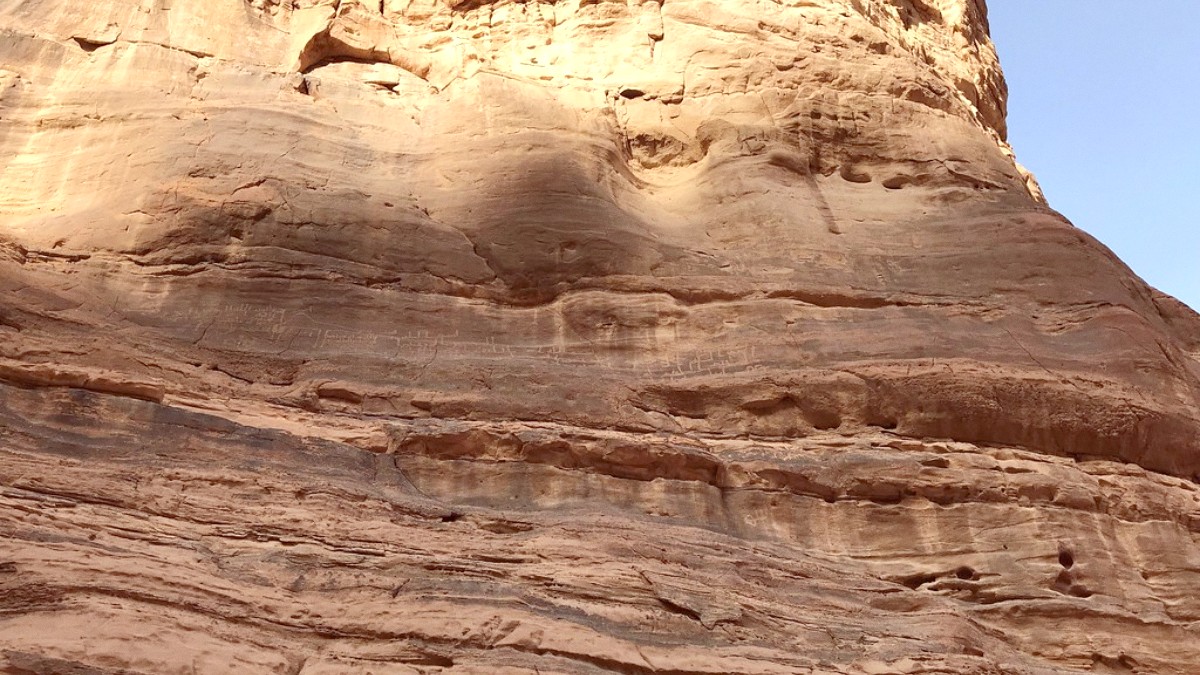
Petra And The South, Jordan
Wadi Rum Protected Area is an UNESCO World Heritage Site, managed by ASEZA and the local Bedouin community. Its preservation focuses on the desert ecosystem, unique geology, and cultural heritage.
Efforts attempt to safeguard desert wildlife (like ibex and gazelles) and unique flora, alongside managing tourist impact to prevent environmental degradation.
Recycling facilities are limited. Visitors are strongly encouraged to carry out all their waste, including plastic bottles and packaging. Do not litter.
Interacting respectfully with the Bedouin community is a core part of responsible travel in Wadi Rum.
Wadi Rum is an arid desert region with scarce water resources. Water is often trucked in, making it a precious commodity.
Travelers can offset their flight emissions through various carbon offset programs available online. Supporting local Bedouin-owned companies for jeep tours uses existing resources.
Seek out camps with a clear commitment to sustainability. This can involve solar power, responsible waste disposal, and active water conservation.
Choose operators who respect local culture and the environment, supporting sustainable practices.
Opt for reusables and support local, ethical tour operators like G Adventures, who prioritize ethical operations.
Your travel choices directly benefit the local community in Wadi Rum.
Tourism in Wadi Rum is managed to support the local Bedouin community. It helps them maintain their traditional way of life amidst modernization.
Modest dress is advisable. Always ask permission before photographing people. Accept offers of food and tea graciously. Bargain respectfully if purchasing items with flexible prices.
Do not photograph people without explicit permission. Be mindful of privacy in communal camp areas.
While no formal religious sites exist within Wadi Rum, maintain respectful behavior in Bedouin homes or camps, which are culturally significant spaces.
When buying souvenirs, opt for items made locally by artisans rather than mass-produced imports. Inquire where items are made to ensure authenticity.
Support artisans by purchasing their handmade goods.
Seek out items with local origin and heritage.
Choose to purchase from small, family-run enterprises.
Your visit and choices contribute to preserving Bedouin traditions and livelihoods.
Your travel choices directly empower the local community in Wadi Rum.
The tourism model in Wadi Rum is designed to be community-based. Local Bedouin tribes manage the tours, camps, and guiding services.
Your choices have a direct financial impact. Choose Bedouin-owned camps and tour operators. Purchase goods from local shops in Wadi Rum Village. Tipping guides and camp staff fairly is also a direct contribution.
Be mindful of ethical considerations. Avoid giving money to children, as it can discourage school attendance. Assess the welfare of animals used for rides.
If you wish to contribute, consider donating to local community projects or schools. Alternatively, ask your trusted Bedouin guide for recommendations on effective support.
Your direct engagement with the local economy matters.
Choose Bedouin-owned camps and tour operators.
Buy goods and services from local shops.
Show appreciation to guides and staff.
Your travel choices empower the local community, contributing to their well-being and the preservation of their heritage.